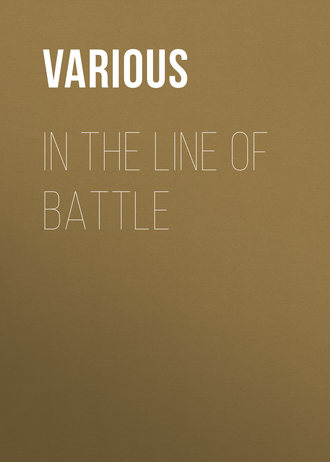In the Line of Battle
 полная версия
полная версияIn the Line of Battle
Жанр: биографии и мемуарыкниги о войнеисторическая научная и учебная литератураобщая историясерьезное чтениеоб истории серьезно
Язык: Английский
Год издания: 2017
Добавлена:
Настройки чтения
Размер шрифта
Высота строк
Поля









